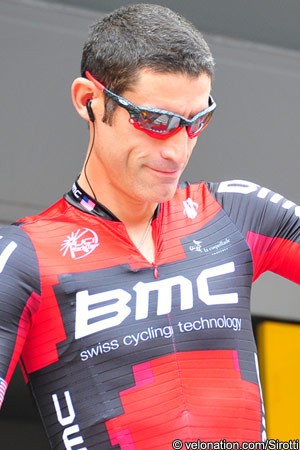“We need to encourage athletes to come forward with information”
 Six former US Postal Service riders who provided sworn testimony of systematic doping on the team have received notification that their six month sanctions won’t be lengthened, with the World Anti Doping Agency accepting the penalties previously handed down by USADA.
Six former US Postal Service riders who provided sworn testimony of systematic doping on the team have received notification that their six month sanctions won’t be lengthened, with the World Anti Doping Agency accepting the penalties previously handed down by USADA.
“The fight against doping benefits from evidence given voluntarily by athletes where it leads to the dismantling of conspiracies and the discovery of intentional doping,” said WADA Director General David Howman today. “The Code itself supports the concept of reduced sentences for athletes in this situation.”
The group, comprising George Hincapie, Michael Barry, David Zabriskie, Tom Danielson, Levi Leipheimer and Christian Vandevelde are currently on inactive status due to the penalties, but will be able to return to competition next March.
They also lost a large number of competitive results during the periods in which they were doping.
Acknowledging that their sanctions are considerably shorter than the two year period normally handed down for serious offences, Howman said that the concession is permitted under the Code in order to increase the chances of doping networks being brought down.
“We need to encourage athletes to come forward with information that is beneficial to anti-doping cases, as very often that information is most effective evidence and this furthers the rights of clean athletes,” he said.
WADA today said that it would not appeal the sanctions given to Lance Armstrong by USADA, namely a lifetime ban and the loss of all of his results since August 1st 1998. While there is a considerable difference between his sanction and theirs, USADA previously said that it would have imposed a shorter sanction on him had he cooperated with their enquiries.
According to USADA chairman Travis Tygart, the Texan would likely have lost only two of his seven Tours if he had cooperated and also shared information.
Instead, Armstrong refused to acknowledge any doping during his career, although he became liable for the same sanctions when he decided not to contest the charges.
Apart from his non-cooperation, the now-disqualified multiple Tour winner was also a part owner of the US Postal Service team and, according to witness testimony, encouraged and coerced other riders to take banned products. They also said that he supplied and transported performance enhancing drugs, making his role more than just a consumer of the products.
The former team manager Johan Bruyneel, former doctor Pedro Celaya and former coach Pepe Marti are all due to face arbitration hearings before the end of the year. They too are facing potential lifetime ban for their roles in doping riders.
Howman told VeloNation earlier today that he didn’t agree with those who are firing riders who confess to former doping. He reiterated that when speaking about the six sanctioned riders, saying that their example shows why such a stance is counter-productive.
“This is why WADA has reservations about the zero tolerance idea that is currently being suggested. We all want clean sport, but in order to achieve that there has to be some incentive for people to come forward and help the anti-doping authorities,” he said.
“There is no point asking anyone to fully disclose matters from the past that nobody knows of and possibly will never will know about, if the outcome for them is a long sanction or the loss of their job. That simply leads to a code of silence or a continuation of the ‘omerta’ that obviously ran rampant in cycling.
“WADA is always open to suggestions that enhance the fight against doping in sport, but there needs to be a thorough realization of how zero tolerance might effectively operate before embracing it as a principle.”
Of the six riders, Hincapie and Barry retired this autumn. The other four are expected to resume racing next season, although Leipheimer is currently looking for a team after being sacked by Omega Pharma Quick Step.